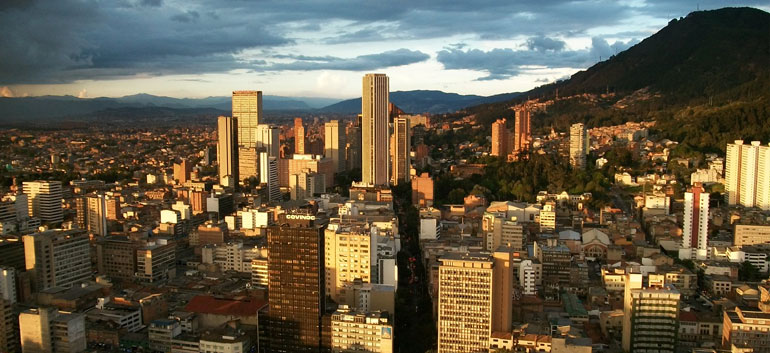Exactly on the day Mayor Gustavo Petro denied the presence of neo-paramilitary groups in Bogota, the city’s public television station received death threats from neo-paramilitary group “Aguilas Negras.”
A pamphlet sent to Canal Capital began: “Toads, sons of whores… your time is up,” and warned the channel no to “believe that you can use your garbage investigations to taint the heroes of the motherland and those Colombians who want to see Latin America free of terrorism”
Venezuela-based Telesur and the international NGO Reporters Without Borders also received the threats. Canal Capital released a statement to the press calling on Minister of the Interior Juan Fernando Cristo to “take urgent measures against this new campaign of hatred against the freedom of the press, and … to take immediate actions that guarantee the life and integrity of TV crew”.
They also requested that the Office of the Attorney-General “react immediately, even though the Office had knowledge of the Senator Alvaro Uribe’s remark of last September 17, when he accused Canal Capital of being a ‘servile medium of terrorism’, an act which put at risk all the employees of this channel, and which the Prosecutor promised to investigate, an inquiry whose advances are not yet known”.
The Aguilas Negras emerged out of the disbanded AUC paramilitary group in 2006, and are the neo-paramilitary group most frequently linked to threats against journalists and activists.
The threat comes at an embarrassing time for Bogota’s authorities, who are facing a rise in violent crime in the city. Only a day before the threat Bogota’s Secretary of Government Floria Perez rejected the Ombudsman’s claim that ‘bacrim’ (criminal bands) are active in the city, saying: “while there are criminal gangs that operate in different localities and are related to micro-trafficking and even drug-trafficking, there is no presence of groups related to the internal armed conflict in Bogota”.
Florez accepted that these groups are affecting the safety of people in the capital to the extent that there has been an increase in hired killers, “but we cannot categorizing them as structures of militias that have control over any area of the district,” she said.
Last month Liberal councilor Horacio Serpa claimed there are 1,32o identified criminal bands within Bogota, and blamed the crime wave on the administration of Gustavo Petro cutting anti-violence and public safety programs by 30% in 2014. Robbery and assault levels have increased in more than half of Bogota’s neighborhoods between the first half of 2013 and that of 2014. Serpa claimed that many of the criminals active in the capital are former paramilitaries, and says that not enough has been done to reintegrate them into society.
MORE: Gangs in Bogota surge as Colombia’s capital cuts public security funds
Colombia as a whole has seen seeing a rise in threats being made to journalists and human rights defenders, with 150 threats being made in September alone, a record since the start of the peace talks. The rise has been blamed on interests who feel threatened by the progress of peace negotiations in Havana.
MORE: September declared a black month in Colombia after record number of death threats
The message sent to Canal Capital referred to the talks: “We have the full list of the sons of whores journalists servile to Castro-Chavezism, and we know that they are found camouflaged in all forms of media. To them too will arrive the same as to the ignorant politicians and defenders of human rights that serve as a sounding board to a peace process in which the traitor Santos is delivering the country to narco-terrorism.”
Sources
- Paramilitares amenazan a Telesur y los medios locales (Noticias Uno)
- Distrito dise que en Bogota no hay Bacrim sino bandas delincuenciales (El Espectador)
- Bogota tiene 1.320 Bacrim identificadas (El Nuevo Siglo)


